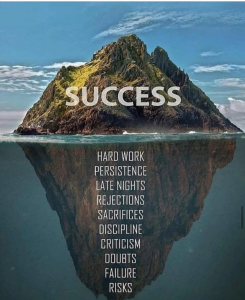Leadership at all levels help to go long way on the way of agile. Leaders are critical for every organization and having a highly effective leader who can maximize the performance of his team is critical.
Danial Goldman researched and identified five components of emotional intelligence that makes a good leader and are needed to be effective at workplace by everyone. Here are the five components of emotional intelligence integral to workplace and especially for leaders.
1- Self awareness: Knowing ones strengths, weaknesses, values, goals, needs, trigger points, emotions and their impacts. Self awareness boost confidence. Since a self aware person knows his strengths and weakness, he can make good decisions that keep them energized and are less likely to fail. They assess themselves honestly that help them to understand what they need to learn in order to grow. They are able to easily accept failure, and are open to constructive feedback.
2- Self regulation: Ability to control or redirect disruptive emotions and impulses. It gives the strength to accept changes easily and help in being comfortable in ambiguity and continuously changing environment. People who are able to self regulate chooses their words wisely does not display extreme negative emotions in any situation which increase their trustworthiness and integrity.
3- Motivation: Being driven to achieve a goal and having energy and persistence to pursue a goal. A motivated person have passion for work, he is full or energy, he love to learn and take pride in job well done. They are always looking for ways to raise the performance and they track their progress and are very clear about where they are heading. Motivation also keep them optimistic no matter what metrics are saying. They value learning as they understand that learning help them grow and will help them be closer to their goal.
4- Empathy: Ability to understand others’ feelings and treating other accordingly. It does not mean adopting others feelings and try to please everyone one, which will make action impossible, but it means thoughtful consideration of others feelings when making intelligent decisions. When leader understand the emotions of its team, it help in increasing collaboration and retention of talent. Coaching and mentoring prove to be more effective with empathy as empathetic people can get inside the heads of people they are helping and are able to give effective feedback and are able to motivate to action.
5- Social Skills: Proficiency in managing relationships and building networks. Being friendly with a purpose to move people in a direction you want. Social skills comes from being self aware and self regulated, while being empathetic with others, which give them power of persuasion. Being able to build and manage relationships with people effectively help leadership to get the work done through people. Empathy and motivation is of no use of they are not communicated. Social skills allows leaders to put their emotional intelligence to work.
Daniel Goleman emphasized that with right approach and commitment emotional intelligence can be acquired and is a mandatory ingredient for a leader.
Reference: What makes a leader? By Daniel Goleman
Photo by rob walsh and Markus Spiske on Unsplash












13 thoughts on “Ingredients Needed in a Highly Effective Leader”
Comments are closed.